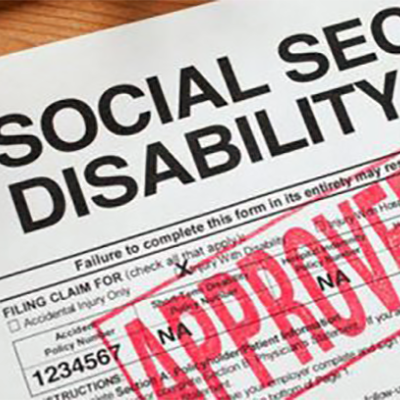
One of the hardest things when I first became disabled by environmental illness was accepting the idea that I was “disabled.” To go from able-bodied to disabled is a huge mental leap that can involve overwhelming feelings of disappointing loved ones and society, and an overall feeling of failure as a human being. Managing these difficult feelings can lead to long delays in actually applying for benefits. But the best advice I got was from a friend with environmental illness when he told me to apply for Social Security Disability Benefits (SSDI) as soon as I was unable to work.
He knew it could take years to receive any benefits, and he knew the typical trajectory of those first becoming chemically sensitive. As positive and hopeful as I may have wanted to be, the truth was I had a very long journey to go, deeper into disability and having my life-as-I-knew-it implode. So, I am going to give you the same advice. If you are just becoming severely chemically sensitive to where it impacts your ability to work and to function as a contributing member of our society, apply for SSDI benefits after discussing your symptoms with your physician. If your doctor is in agreement that you are disabled, you will want to apply for SSDI benefits right away.
HOW DO I KNOW IF I QUALIFY?
To qualify for SSDI benefits, you must first have worked in jobs covered by Social Security. You must also have one or more medical conditions that meet Social Security’s definition of disability. My Environmental Medicine physician, at the time I applied for SSDI, chose not to use the diagnosis of Environmental Illness in his letter to SSDI on my behalf; he felt it was more effective to focus on my symptom picture and what symptoms I had that were disabling. This proved to be a successful approach, in my case.
Click here to find a listing of SSDI impairments for adults above the age of 18. For all of your impairments, you can go through and see if you meet the criteria for disability, which they list out in detail. Here is their listing of Evidentiary Requirements; what you will need to prove your disability.
You don’t need a lawyer, but I definitely recommend using one. SSDI lawyers typically will take your case without payment and they will deduct their fee once you are awarded any back pay. SSDI lawyers and non-attorney advocates are limited by law as to how much money they can make, and the maximum they can charge is 25% of your back pay for his or her services, up to a maximum of $6,000.
I used Binder and Binder for my SSDI case. Others have successfully used other firms.
The best approach for applying for SSDI is to hire an SSDI lawyer, but do not depend on them to make your case for you. Do as much of the “legwork” as possible yourself. This includes:
1) Making a list of your impairments and the criteria you need to meet to be considered disabled;
2) Providing acceptable medical evidence (bloodwork, imaging results, doctor’s notes, etc.) to prove each of your impairments exists, its severity, and how it affects your day-to-day functioning.
3) Provide a daily activity schedule showing how you spend your time each day and how your impairments affect what you can accomplish;
4) Provide a list of any medications you take (or if you cannot take medications, provide medical evidence why, such as a liver detoxification test showing impaired detoxification abilities), and any treatments you must do to manage your symptoms;
5) A personal recap of how you became impaired and how this has affected you physically, emotionally, mentally, cognitively, financially, socially and any other way;
6) Letters from physicians (MDs), physician assistants (PAs), psychiatrists, psychologists, physical therapists, family members, friends, bosses (can include a past job review), that affirm the existence and severity of your impairments and how they have affected your life and relationships.
Once you apply, typically you will get rejected and have to appeal the decision. Don’t be discouraged by this, it seems to be their mode of operandi. Once you appeal your case, it can take up to two years to be approved. At that point, you should receive a nice big check for back pay, minus your lawyers’ fee.
If you do not get approved for SSDI, you can appeal again, which will take even longer.






Excellent advice! I hope this spreads for those that need it. There are so many that find themselves homeless and unable to care for themselves with no support even though they’ve worked long enough for it, or qualify without the work quarters (different program).
Thank you, Bobalong. I am happy you found this helpful.